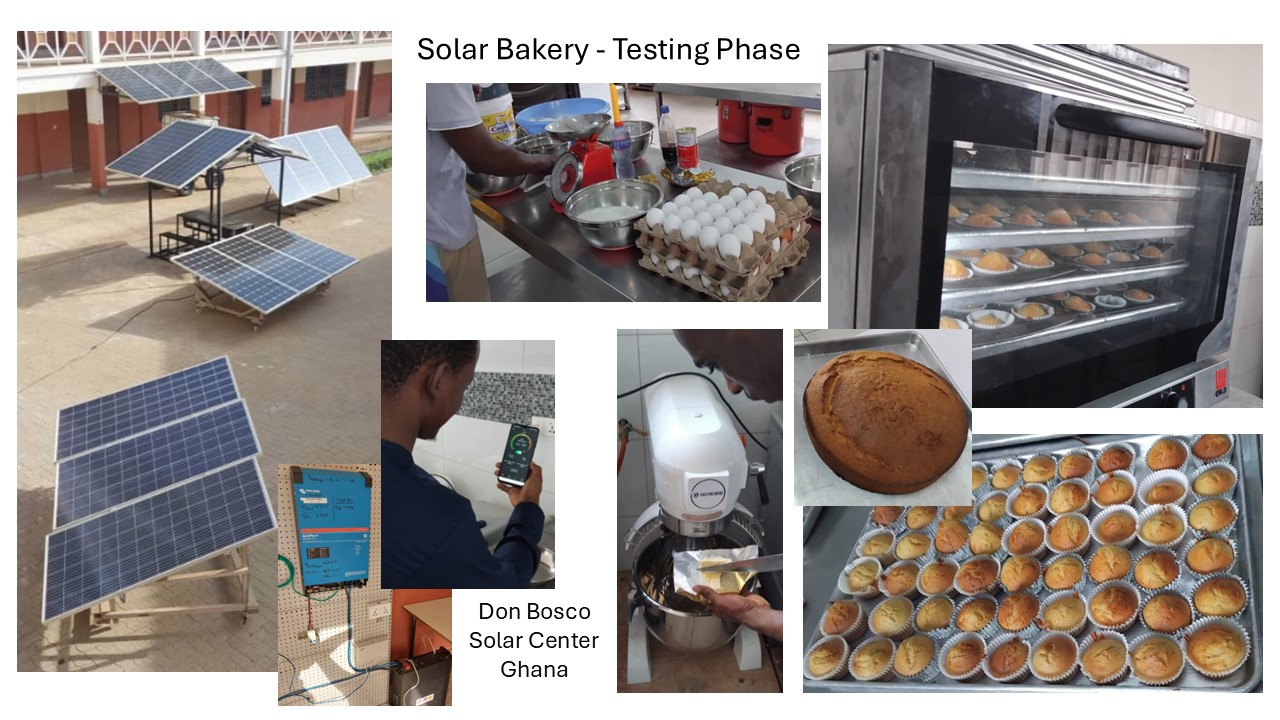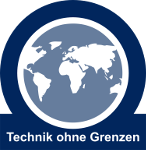Solar Bakery
About the Project

Background
In many African countries, ovens are heated by wood or gas. In some places, there is no electricity supply at all, so electric ovens cannot be connected to the grid. In addition to the fact that fossil fuels are disadvantageous for climate and environmental protection, the search for firewood can be very time-consuming and the use of gas can be expensive. If the bread is not baked in the village, it often comes from large bakeries and may have to be bought from faraway shops. Solar radiation is high and reliable in large parts of Africa, so the use of photovoltaics as an energy source for baking ovens appears attractive. In addition, the purchase costs for PV panels have fallen dramatically in recent years. The idea that solar-powered village bakeries can be operated profitably without a connection to the electricity grid (off-grid) and contribute to a more liveable infrastructure in African villages is very motivating. This project aims to test the technical design and robustness under African climatic conditions.Implementation
For the start of the project, an oven and dough mixer sufficient for smaller bakeries were procured - as well as baking trays and a suitable rack. A flexibly configurable solar system for test operation has already been installed at Don Bosco Solar in Ghana. The aim is to find out over a longer period of time which configuration of solar panels and battery is optimal for baking under local conditions in terms of performance and cost aspects. Sending the devices to Ghana proved to be difficult. Although this is a development aid project, which officially should not incur any customs duties and taxes, the authorities delayed clearance in Accra for so long that we ended up paying customs duties after all. Unfortunately, these bureaucratic hurdles and their financial consequences make it very difficult to realise innovative projects. Since mid-May 2025, we have been able to collect the desired data and experience in baking operations at Don Bosco. Next week, we will be baking for the first time on a smaller off-grid power net under cloudy skies. Such situation will also occur in the planned village bakeries - this will show in particular what battery capacity makes sense in order to be able to maintain at least a reduced baking operation.Subsequent Projects
Based on the experience from the pilot project, we will work closely with Don Bosco to find a village in an African country that is as safe as possible (Senegal, Ethiopia, Uganda, Kenya and Tanzania are candidates). The aim there is to find an entrepreneurial baker in order to assess the economic viability and social acceptance of the solar village bakery under real conditions. Specifically, we want to prove that the salaries of the staff, the purchase of all baking ingredients as well as the rent for the building can be earned at standard local bread prices. In addition, the loan for the purchase of the equipment and any maintenance costs must be repayed from the income. Estimates made in advance are promising, but confirmation from practical experience is important to us in order to promote solar village bakeries in Africa on a larger scale together with Don Bosco. In addition to many other tasks, Don Bosco is heavily involved in the professional training of young people. This includes junior bakers, for whom the proven concept of a solar village bakery could be an attractive option for their professional future. It will then be very important for the prospective bakery owner to gain access to attractive loans with the help of the experience gained. Ideally, this business idea will spread independently in this way.Vision
If a solar village bakery can be operated profitably, this should also be possible for other PV-based services. With correspondingly expanded solar systems, it is conceivable, for example, that refrigerators could be rented out (there are hardly any refrigerators in many African villages), or charging stations for smartphones/laptops, e-bikes, e-scooters and e-cars. But the basic idea remains the same: We want to promote entrepreneurship in Africa by proving the sustainability of solar-powered concepts and thus promote ideas that are self-financing and not dependent on permanent donations.Information
Donation Status
Project number
GHA-72-EN
Project Leader
Martin Ostermeier
Regional Groups
- Erlangen
Project members
Andreas Wassmuth (TeoG)
Richard Öchsner (Fraunhofer ISSB)
Christof Baum (Don Bosco Solar)
Project Category
 Energy
Energy Timespan
April 2024 - now
Project stage
current
News
No entries.
